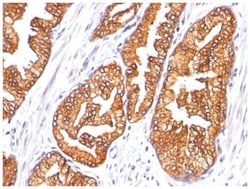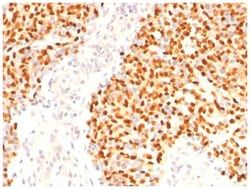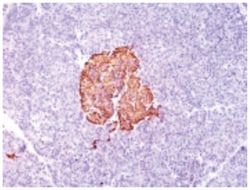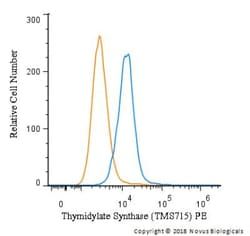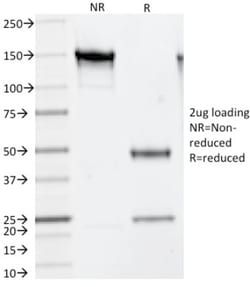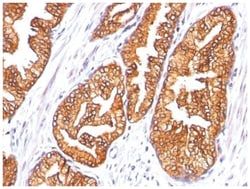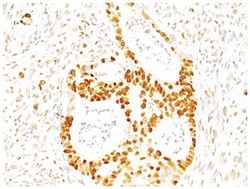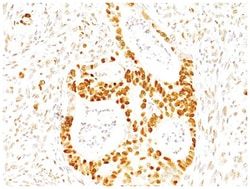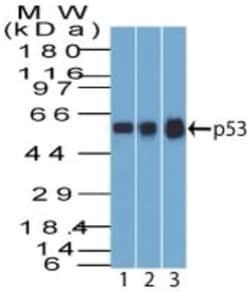Ornithine Decarboxylase Mouse, Clone: SPM565, Novus Biologicals™
Mouse Monoclonal Antibody
Manufacturer: Fischer Scientific
The price for this product is unavailable. Please request a quote
Antigen
Ornithine Decarboxylase
Dilution
Western Blot 0.5-1ug/ml, Flow Cytometry 0.5-1ug/million cells, Immunocytochemistry/Immunofluorescence 0.5-1ug/ml, Immunohistochemistry-Paraffin 0.5-1.0ug/ml, Immunohistochemistry-Frozen 0.5-1.0ug/ml
Classification
Monoclonal
Form
Purified
Regulatory Status
RUO
Target Species
Human, Rat
Gene Accession No.
P11926
Gene ID (Entrez)
4953
Immunogen
Recombinant human ODC-1 protein
Primary or Secondary
Primary
Content And Storage
Store at 4C.
Molecular Weight of Antigen
53 kDa
Clone
SPM565
Applications
Western Blot, Flow Cytometry, Immunocytochemistry, Immunofluorescence, Immunohistochemistry (Paraffin), Immunohistochemistry (Frozen)
Conjugate
Unconjugated
Host Species
Mouse
Research Discipline
Cell Cycle and Replication
Formulation
PBS with 0.05% BSA. with 0.05% Sodium Azide
Gene Alias
ODCEC 4.1.1.17, ornithine decarboxylase, ornithine decarboxylase 1
Gene Symbols
ODC1
Isotype
IgG1 κ
Purification Method
Protein A purified
Test Specificity
Recognizes a 53kDa protein, identified as the Ornithine Decarboxylase (ODC-1). ODC is the initial and rate-limiting enzyme in the biosynthetic pathway of polyamines and is involved in the conversion of ornithine to putrescine. The biological activity of ODC-1 is rapidly induced in response to virtually all agents known to promote cell proliferation including hormones, drugs, growth factors, mitogens, and tumor promoters. Reportedly, ODC mRNA levels are elevated in lung carcinomas as well as in colon adenomas and carcinomas. ODC activity in colorectal carcinomas is greater than those in adenomas and normal mucosa.
Description
- Description Ornithine Decarboxylase Monoclonal specifically detects Ornithine Decarboxylase in Human, Rat samples
- It is validated for Western Blot, Flow Cytometry, Immunohistochemistry, Immunocytochemistry/Immunofluorescence, Immunohistochemistry-Paraffin.
